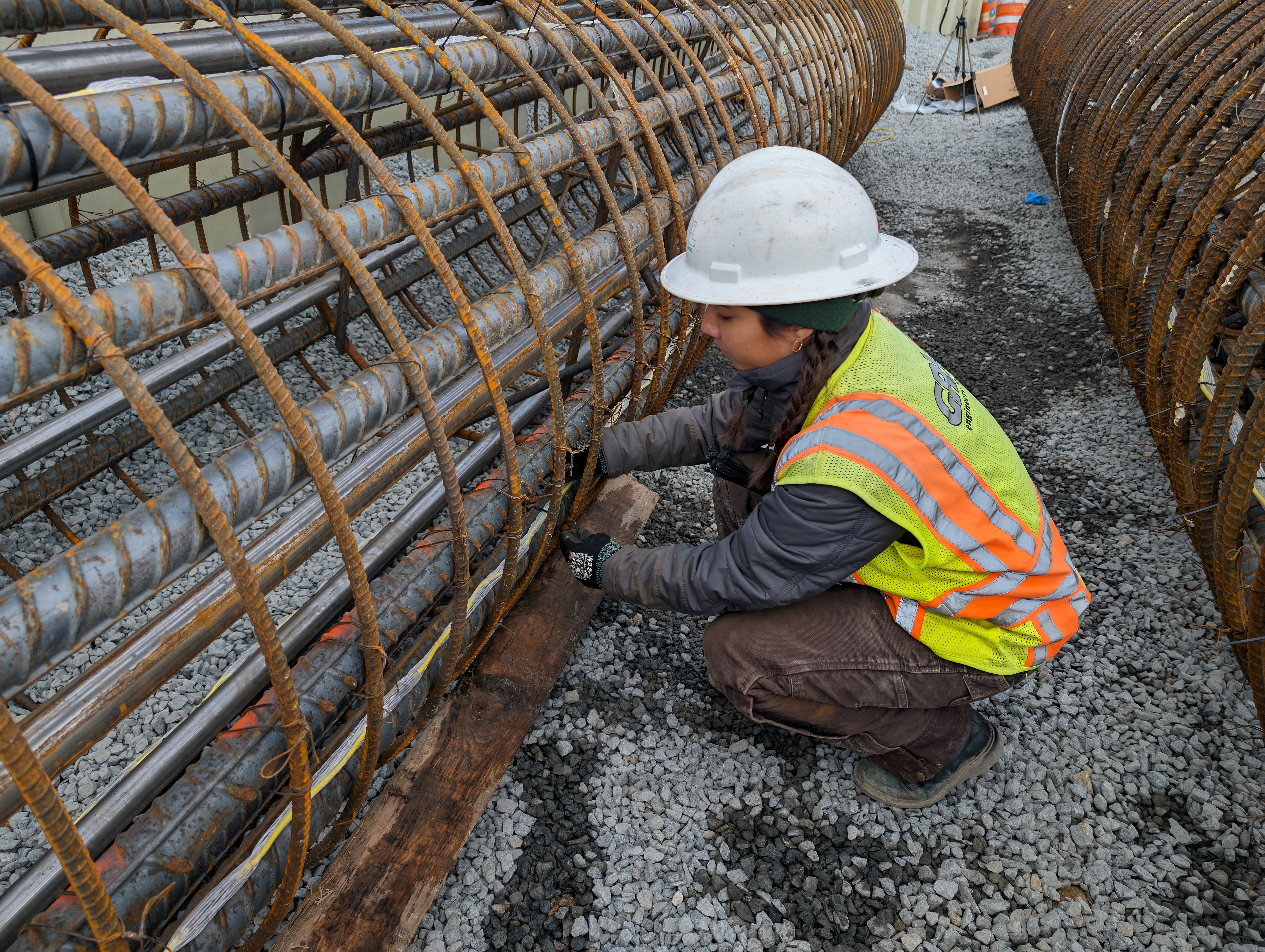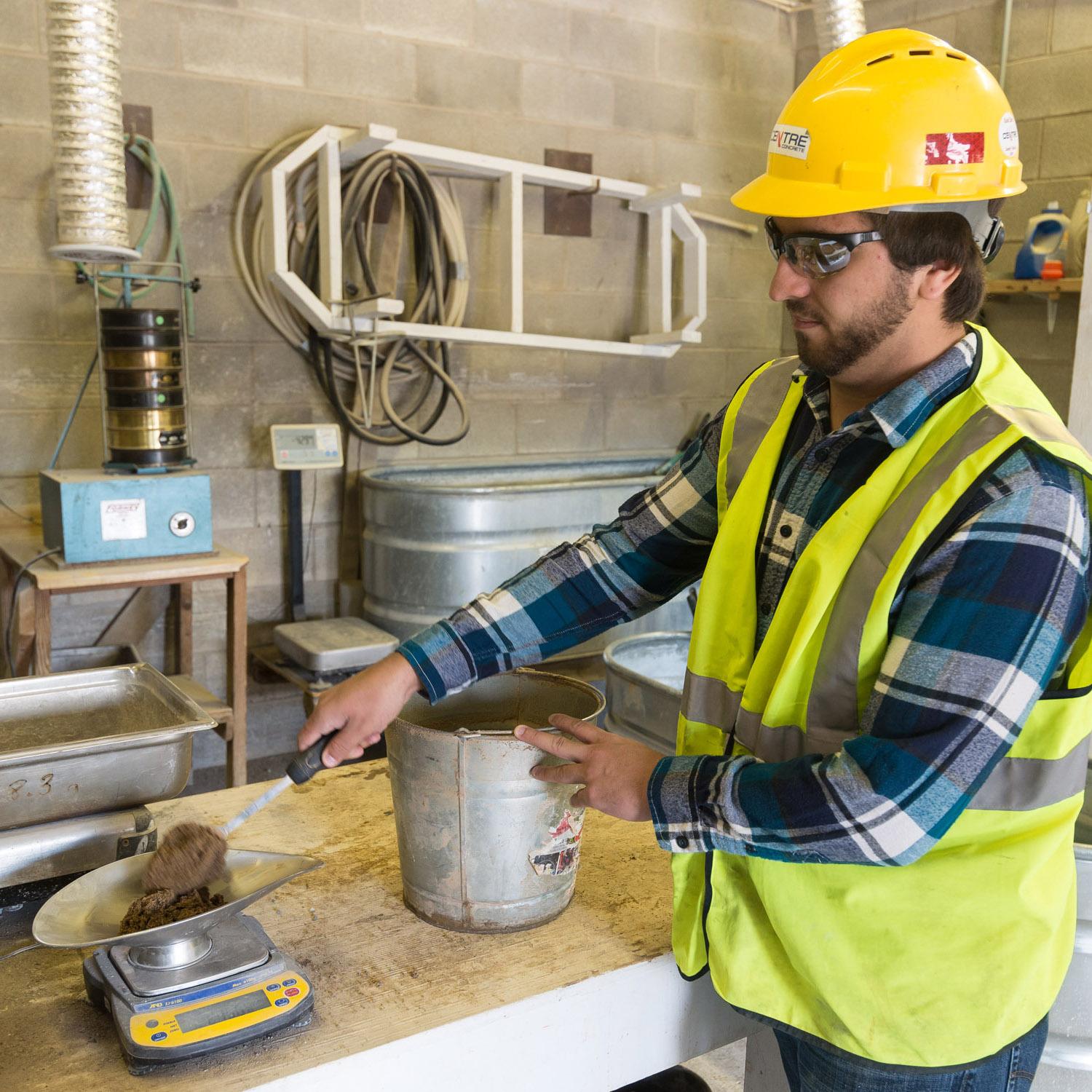The Expert Blueprint to Using West Coast General Engineering commercial concrete in High-Volume Projects
The Expert Blueprint to Using West Coast General Engineering commercial concrete in High-Volume Projects
Blog Article
The Necessary Duty of Concrete Structure in Structural Stability and Longevity
When it pertains to constructing a home, the structure is much more essential than you may assume. Concrete foundations offer unparalleled toughness and sturdiness, guaranteeing your framework can hold up against various environmental difficulties. Without a solid base, you run the risk of possible concerns like moving or fracturing, which can endanger safety and security and worth. Recognizing the subtleties of concrete structures might be the secret to maintaining your investment for several years ahead. What should you think about next?
Understanding the Significance of Concrete Foundations
Concrete foundations are vital to the total stability of any structure, as they give the essential support required to stand up to different loads and ecological conditions. When you think concerning developing a home or an industrial space, the structure is the very first thing you should take into consideration. It functions as a barrier versus dampness, securing your residential or commercial property from water damage. A well-placed concrete structure also prevents settling and shifting, which can bring about splits in wall surfaces and floorings. You'll intend to guarantee that the foundation is effectively created and enhanced, as this impacts the longevity of your structure. Furthermore, a solid foundation can boost energy efficiency by lowering air leaks. Remember, disregarding the significance of a concrete structure can cause costly fixings down the line. Investing in a quality structure upfront is vital for the integrity and longevity of your framework.
Benefits of Concrete Foundations for Architectural Stability
While many elements add to a structure's structural integrity, concrete structures offer unrivaled longevity and toughness. You'll value that concrete can stand up to severe climate condition, resisting both moisture and temperature changes. This durability implies your structure is less likely to experience fracturing or moving in time, which can jeopardize its safety.Additionally, concrete's inherent weight provides a strong base, stopping movement throughout all-natural occasions like earthquakes or floods. When you choose a concrete structure, you're also choosing reduced maintenance; unlike timber, it won't rot or attract bugs, saving you money and time in repairs.Moreover, concrete's fire resistance offers added safety and security, ensuring your structure can sustain heats without substantial damage. Generally, spending in a concrete structure means you're prioritizing the lasting security and integrity of your structure, making it a smart choice for any construction task.
Typical Sorts Of Concrete Foundations
When it pertains to constructing foundations, recognizing the common types of concrete structures can aid you make informed choices for your task. One of the most common types consist of slab-on-grade, crawl area, and full cellar foundations.A slab-on-grade structure is a basic, economical choice, where a thick concrete slab is put directly on the ground. This kind works well in cozy environments, as it minimizes warmth loss.Crawl area foundations boost the home somewhat over ground, enabling for ventilation and accessibility to pipes and electric systems. This style can help protect against wetness issues.Full basement structures offer added living or storage space while giving exceptional structural assistance. They require more excavation and are generally made use of in colder environments to avoid frost heave.
Factors to Think About When Designing a Concrete Structure

Best Practices for Putting Up Concrete Foundations
When you're setting up a concrete foundation, proper website preparation is vital to ensure stability (West Coast General Engineering commercial concrete). You'll also require to comprehend support methods to improve toughness and durability. Ultimately, do not ignore the treating process, as it plays a basic function in achieving a strong structure
Website Prep Work Value
It might seem straightforward, appropriate website prep work is important for guaranteeing a solid and long lasting concrete foundation. Beginning by getting rid of the location of any particles, plant life, or natural material that could endanger the foundation's integrity. Next off, analyze the dirt type and compaction; you might need to excavate or add products to develop a steady base. Degree the ground to assure also weight distribution and avoid settling issues later. Setting up proper drain systems is likewise vital to protect against water build-up, which can weaken the structure over time. Ultimately, mark out the foundation's measurements accurately to lead the pouring procedure. By adhering to these steps, you'll establish the stage for a successful concrete foundation that stands the test of time.
Reinforcement Strategies Described
When the website is effectively prepared, the next action in guaranteeing a sturdy concrete foundation involves applying efficient support methods. You should begin by using steel rebar, which supplies tensile strength and aids avoid fracturing. Lay the rebar in a grid pattern, seeing to it it rises utilizing spacers to maintain correct protection. Additionally, think about using cable mesh for added assistance, specifically in areas based on hefty loads. Don't fail to remember to link the rebar junctions safely with cable. For bigger foundations, fiber reinforcement can improve longevity, reducing the threat of shrinkage splits. Always follow regional building regulations and standards to guarantee compliance. By using these reinforcement methods, you'll substantially enhance your foundation's toughness and long life, laying a strong groundwork for your framework.
Curing Refine Basics
To ensure your concrete foundation treatments correctly, it's essential to keep appropriate moisture and temperature conditions promptly after putting. Start by covering the surface area with a damp burlap or plastic sheeting to maintain moisture. This keeps the concrete hydrated, avoiding fractures and making certain stamina. You must additionally monitor the temperature level; ideal treating conditions are between 50 ° F and 90 ° F. If it's also warm, mist the surface area on a regular basis to avoid rapid evaporation. For winter, consider making use of protecting blankets to keep heat. Goal for a healing period of a minimum of 7 days, as this is crucial for optimal stamina growth. By following these finest methods, you'll boost your structure's durability and longevity, making sure structural stability for many years to come.
Maintenance of Concrete Structures for Longevity
To maintain your concrete foundation solid and lasting, routine inspections are necessary. You ought to additionally guarantee reliable drainage options remain in place to avoid water damage. If you identify any fractures, resolving them promptly look at more info will conserve you from bigger issues down the line.

Regular Assessments and Evaluations
While routine evaluations and assessments may feel like a task, they're important for maintaining the honesty of your navigate to these guys concrete structure. By regularly looking for cracks, changes, or indicators of wear, you can capture possible problems before they intensify into costly repairs. Search for any type of water pooling around the structure or uncommon settling, as these can signify underlying issues. It's also sensible to check any type of changes in your house's framework, like doors that stick or windows that do not open efficiently. Keeping a document of your examinations assists track changes with time, permitting positive maintenance. Inevitably, these analyses ensure your foundation remains stable, supporting the long life and safety of your whole structure. Do not neglect this critical element of homeownership!
Effective Water Drainage Solutions
Regular assessments can disclose problems like water drainage issues that could compromise your concrete foundation's security. To stop water build-up, assure your gutters and downspouts direct water far from the structure. Installing French drains can effectively redirect surface area and groundwater, reducing stress on your structure wall surfaces. Additionally, grading the dirt around your home aids guarantee that water streams away, instead than merging near your foundation.Consider using sump pumps in areas susceptible to flooding, as they read this post here proactively get rid of excess water. Routinely inspect for obstructions in water drainage systems and clear them promptly. You'll safeguard your foundation's stability and long life by taking these aggressive actions. Remember, effective drainage services are vital for preserving a solid, long lasting concrete structure.
Motivate Split Services
When you notice cracks in your concrete foundation, addressing them promptly is essential for maintaining its longevity. Small cracks can quickly evolve into bigger concerns, endangering the architectural honesty of your home. Regularly evaluate your structure for indicators of damages, such as straight or upright fractures. If you detect any, don't wait-- repair them instantly. You can utilize epoxy injections or concrete patching compounds, which work for sealing cracks. Always follow the manufacturer's instructions and consider speaking with an expert for considerable damage. Remember, prompt fixings not only improve your foundation's sturdiness however likewise save you money over time by protecting against extra substantial fixings down the line. Keep aggressive, and your structure will certainly stay strong and safe and secure.
Resolving Usual Concerns With Concrete Structures
Concrete foundations can deal with various issues with time, making it vital to identify and resolve them quickly. Among one of the most common troubles is breaking, which can occur as a result of temperature fluctuations or clearing up soil. If you observe cracks, it's important to examine their dimension and depth; tiny cracks can commonly be sealed, while bigger ones might require specialist evaluation.Water intrusion is one more significant concern. Excess wetness can bring about mold growth and architectural degeneration. Warranty proper drain around your structure to reduce this danger. Additionally, try to find indicators of shifting or bowing walls, as this can show underlying issues with your structure's stability.Regular examinations are fundamental to catch these troubles early. If you detect any concerning signs, don't wait to speak with a structure expert. By staying positive, you can keep the integrity and durability of your concrete structure, guaranteeing your home remains risk-free and safe and secure.
Frequently Asked Questions
Exactly How Does Dirt Type Affect Concrete Foundation Performance?
Soil type substantially affects concrete foundation performance. If you've got expansive clay, for example, it can cause shifting and cracking. Sandy soil might lead to settling. Understanding your dirt aids assure a steady foundation.
Can Concrete Foundations Be Repaired if Harmed?
Yes, you can repair broken concrete foundations. Depending upon the degree of the damage, methods like epoxy injection or slab jacking can bring back stability. It's best to seek advice from an expert for efficient services.
What Is the Normal Lifespan of a Concrete Foundation?
A concrete structure commonly lasts 30 to 100 years, relying on aspects like soil problems, environment, and maintenance. You'll wish to watch on it to assure it stays healthy throughout its life expectancy.
Are There Choice Materials to Concrete for Foundations?
Yes, there are alternatives to concrete for structures, like steel, wood, or perhaps recycled products. Each option has one-of-a-kind advantages and drawbacks, so you need to consider your job's particular needs when selecting the right product.
Exactly How Does Climate Influence Concrete Foundation Resilience?
Environment substantially affects concrete structure longevity (West Coast General Engineering industrial concrete). Extreme temperature levels, wetness, and freeze-thaw cycles can weaken the material, leading to fractures and architectural problems. You need to think about neighborhood climate problems when planning your structure to assure long-lasting performance
Report this page